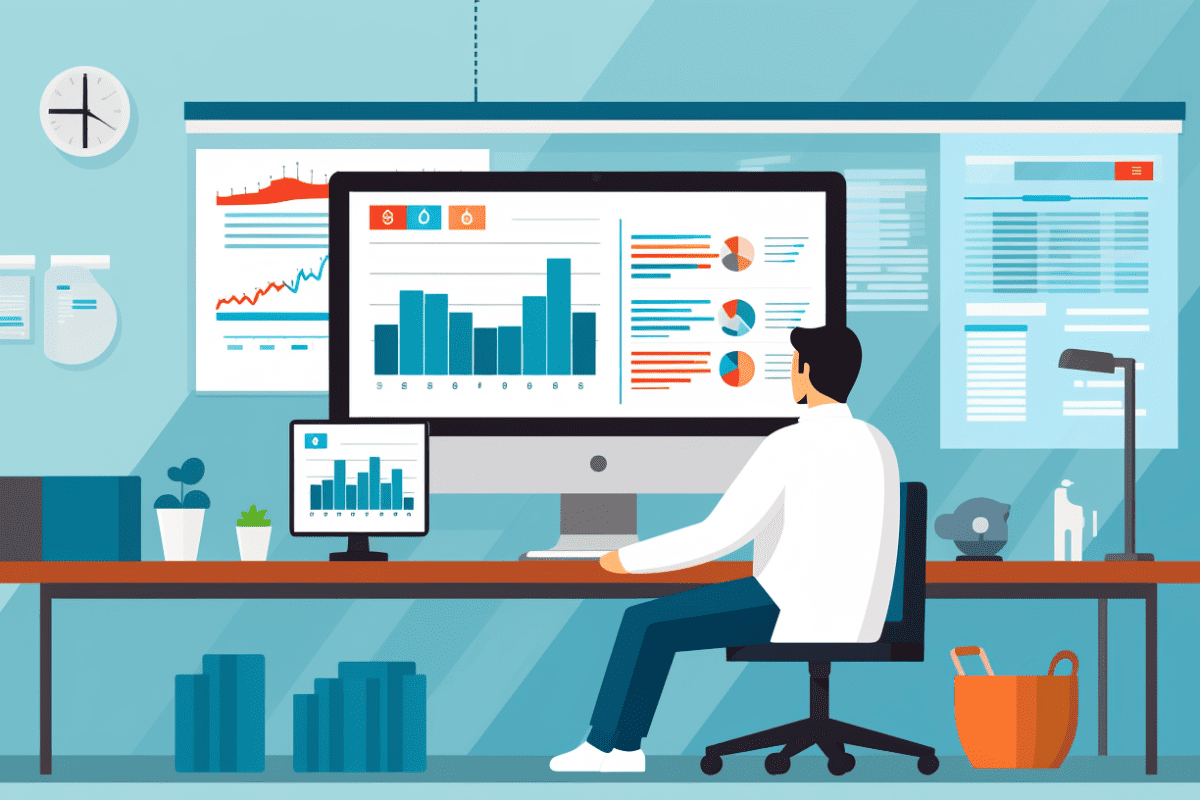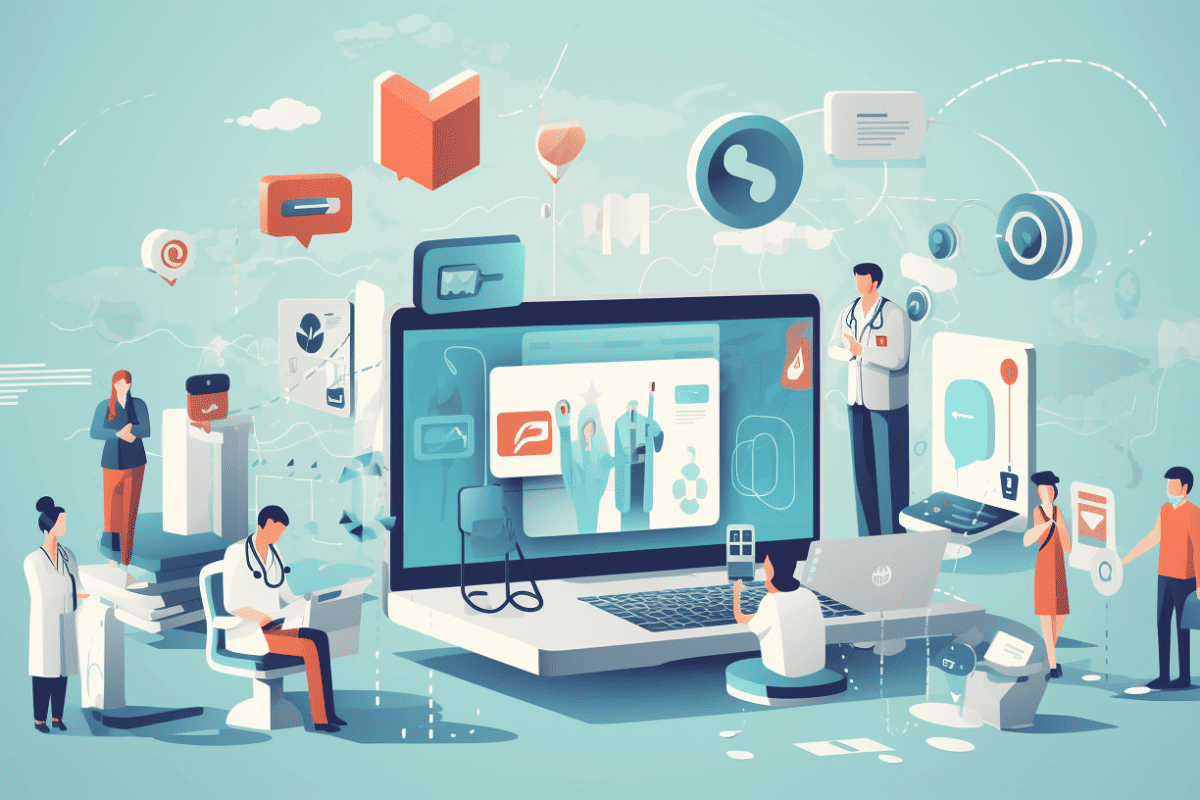Digital technologies have revolutionized the way healthcare businesses market their products and services. From social media to email marketing, digital tools are now an essential part of healthcare marketing strategies. In this article, we will discuss the impact of digital technologies on healthcare marketing, including the benefits and challenges of using digital tools.
1. Targeted marketing
Digital technologies have made targeted marketing more effective than ever before. By gathering data on healthcare professionals, businesses can target specific individuals or groups based on factors such as specialty, location, and practice size. This allows businesses to reach the right people at the right time, increasing the chances of their marketing efforts being successful.
2. Increased engagement
Digital technologies have also increased engagement between healthcare businesses and healthcare professionals. Social media platforms, such as Facebook and Twitter, allow businesses to interact with healthcare professionals in real-time, providing valuable information and answering questions. Additionally, email marketing allows businesses to personalize messages and send targeted content, increasing the chances of healthcare professionals engaging with the content.
3. Better ROI
Digital technologies have also led to better return on investment (ROI) for healthcare marketing efforts. By targeting specific individuals and groups, businesses can increase the chances of their messages being read and acted upon, leading to increased sales and more patients. Additionally, digital tools such as analytics and tracking tools allow businesses to measure the effectiveness of their marketing efforts, providing valuable insights for improving ROI.
4. Cost-effective marketing
Digital technologies have also made healthcare marketing more cost-effective. Compared to traditional marketing methods, such as direct mail or print advertising, digital tools are generally less expensive. Additionally, by targeting specific individuals and groups, businesses can avoid wasting resources on marketing efforts that are not likely to be effective. One of the most important aspects for cost-effective marketing is using accurate and up-to-date email lists of healthcare professionals. Here, it’s important to choose a reputable provider like BuyDoctorList which can provide high-quality and accurate data to help reach your target market effectively. In this way, you can ensure that your marketing efforts are cost-effective and successful.
5. Greater reach
Digital technologies have also allowed healthcare businesses to reach a wider audience. Platforms such as social media and email marketing allow businesses to reach healthcare professionals across the globe, increasing the potential customer base. Additionally, businesses can use digital advertising tools such as pay-per-click (PPC) advertising to reach specific individuals or groups, increasing the chances of reaching the right audience.
6. Real-time data collection
Digital technologies also allow businesses to collect data in real-time, providing valuable insights for improving marketing efforts. Tools such as web analytics, social media monitoring, and email marketing software allow businesses to track engagement, conversion rates, and other important metrics. This allows businesses to make data-driven decisions and optimize their marketing efforts accordingly.
7. Compliance with regulations
Digital technologies have also made it easier for healthcare businesses to comply with regulations such as the General Data Protection Regulation (GDPR) and the Health Insurance Portability and Accountability Act (HIPAA). Digital tools such as email marketing software and social media platforms have built-in features that allow businesses to obtain consent and protect personal information, ensuring compliance with regulations.
8. Challenges
However, digital technologies also present challenges for healthcare businesses. For example, the sheer volume of digital tools and platforms can make it difficult to choose the right tools for a specific business. Additionally, the constantly changing nature of digital technologies can make it difficult for businesses to stay up-to-date.
9. Cybersecurity concerns
Another challenge is cybersecurity. As healthcare businesses collect and store large amounts of sensitive patient data, they are at a greater risk for cyber attacks. Digital technologies have made it easier for hackers to access this information, so it’s important for healthcare businesses to implement strong cybersecurity measures.
In addition, it is important for healthcare businesses to remember that digital technologies are not a one-size-fits-all solution. Different digital tools and platforms have their own strengths and weaknesses, and it’s important to choose the right tools for your specific business and audience. For example, a B2B healthcare company may find LinkedIn more effective for reaching their target market than a B2C company that focuses on patients. Similarly, a business that sells medical equipment may find email marketing more effective than one that provides telemedicine services. By understanding the unique needs and characteristics of your target market and your business, you can choose the right digital tools to reach and engage them effectively.
Finally, it’s important to remember that digital technologies are not a replacement for
traditional marketing methods but rather a complement to them. By combining the
best of both worlds, you can create a comprehensive marketing strategy that
reaches healthcare professionals where they are, whether it’s on social media, email, or even traditional channels such as print or events.
In summary,the impact of digital technologies on healthcare marketing has been substantial. By using targeted marketing, increased engagement, better ROI, cost-effective marketing, greater reach and real-time data collection, businesses can achieve their marketing goals and drive growth. However, it’s important to navigate the challenges such as choosing the right tools, staying up-to-date with the constantly changing digital landscape, and ensuring compliance with regulations and cybersecurity. With the right strategy and tools, healthcare businesses can leverage the power of digital technologies to reach and engage healthcare professionals effectively.
This is a sponsored post
Digital Health Buzz!
Digital Health Buzz! aims to be the destination of choice when it comes to what’s happening in the digital health world. We are not about news and views, but informative articles and thoughts to apply in your business.


